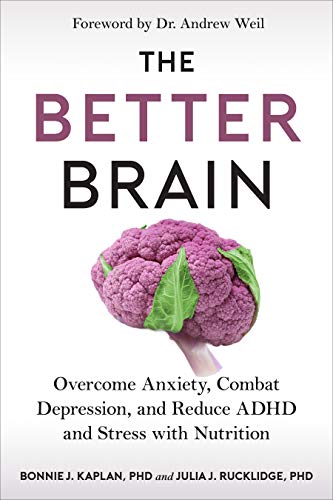There is an enormous crisis in America right now. Not just an economic crisis or an obesity crisis or an opioid crisis. A mental health crisis.
Currently, one person in every five has some form of mental health issue. This is incredibly disturbing, because a mental health challenge in one individual affects an entire family, which means that the number affected is much higher. Yet for over fifty years, modern medicine has been trying — mostly unsuccessfully — to treat mental disorders with pharmaceuticals. For example:
• All indicators across all Western countries show that mood and anxiety disorders have not decreased over the last few decades — actually, they’ve gone way up — despite substantial increases in the prescriptions of medications, particularly antidepressants. Right now about 40 million Americans take some kind of psychiatric medication: that’s equivalent to about one in six adults. According to an article published in the New York Times on April 7, 2018, 15.5 million Americans have been taking antidepressants in particular for at least five years. This rate has almost doubled since 2010, and more than tripled since 2000.
• Despite an ever-increasing use of antidepressants, recovery rates and relapse rates aren’t any better now than they were fifty years ago before the advent of medications.
• According to the CDC (Centers for Disease Control), suicide rates in the United States have increased steadily from 2000 to 2016.
Conventional treatment helps some, but doesn’t solve the problem. Many people remain shamed by the unfair social stigma around mental health issues, putting them at risk for even worse symptoms of depression and anxiety.
In addition, the impact on healthcare budgets of these often ineffective treatments is huge. It costs the US economy tens of billions of dollars for treatments that just aren’t working well enough. Not to mention the cost to consumers who can’t afford insurance or copays.
What if there is a solution to this crisis?
What if the pharmaceuticals that are costly, ineffective for many, and laden with side effects were no longer the automatic go-to treatment for mental health issues?
What if we could eliminate that social stigma by showing that many mental health symptoms in some people are simply caused by suboptimal nutrition and not by something being “wrong” with you?
What if the right nutritional approach to treating mental health issues can save as much as 90 percent of society’s mental healthcare budget?
What if one solution to this crisis is as simple as changing how you eat?
Nutrition matters, much more than you may realize. We all know that eating poorly can cause all kinds of physical illnesses, like obesity, Type II diabetes, cardiovascular disease, and premature death. But poor nutrition is also a significant risk factor for the development of mental illness.
Why? Because when we eat, most of the energy and nutrients we consume are used by our brains. What you eat today will affect how you feel and think tomorrow. Most people don’t know that. They might think that a healthy diet is needed for overall health, but not realize its importance for better mental health.
The Better Brain is the first book that will tell you how and why nutrients can be used to treat mental health issues. We are scientists who’ve shown that many symptoms of anxiety, depression, attention deficit/hyperactivity disorder (ADHD), post-traumatic stress disorder (PTSD), and more are caused by suboptimal nutrition.
In other words, what if a large part of the solution to this mental health crisis is as simple as changing what you feed your brain?
This book is all about that solution.
————————–
We want this book to be the tipping point for revolutionizing the way mental health problems are treated. Not only will this book show you how to take prevention seriously by optimizing your nutrient intake, but it will give you the information you need so that you can have informed discussions with all your healthcare providers about options that might really work for you.
This book will put the critical knowledge in your hands, and it will empower you to improve not only your life but the lives of your loved ones.
Making this happen is why we wrote this book. To work toward a successful treatment approach, one that is more affordable and accessible to the millions of people who need it.
When people realize what nutrients do inside their brains, they are more likely to change the way they eat. People get better not just in terms of mental health symptoms — their sleep improves; their moods improve; their need for addictive drugs like cigarettes, marijuana, and alcohol goes down; and they find it much easier to cope with life’s daily stresses.We can do better if we learn how to care for our brains through nutrition. Change is long overdue. And no prescription is needed!



